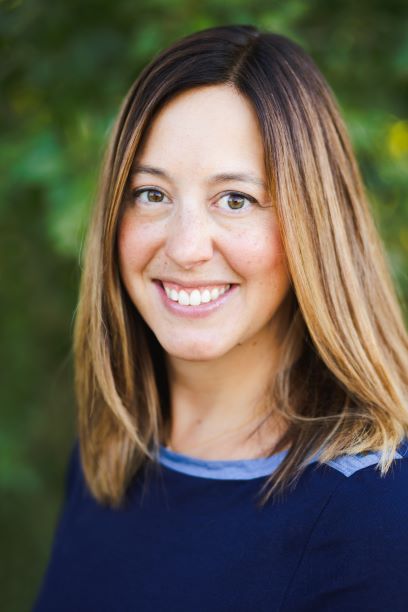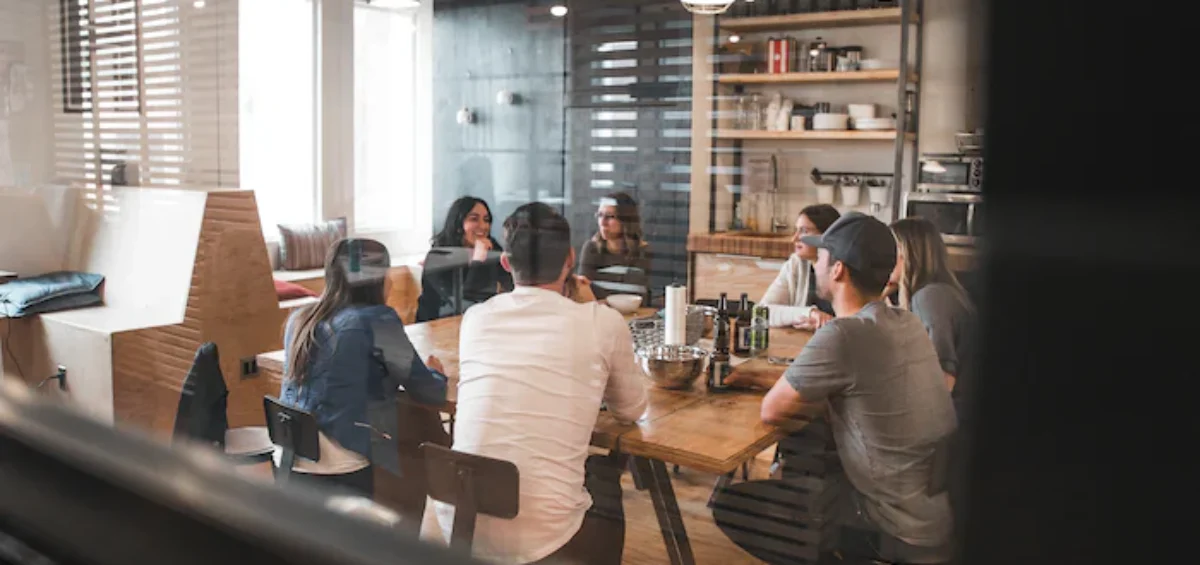What is the Role of Clinical Consultation Groups for Therapists in Washington?
By Shannon Heers
If you are a private practice therapist in the state of Washington, you may be looking for a group of like-minded colleagues who are seeking clinical consultation. Clinical consultation groups are a great way to connect with other therapists and get support for your tough cases. They can also be a good place to network with others, learn new modalities of treatment, and expand your clinical skills.
Clinical consultation groups can play a big role in your therapy practice. Whether you are located in a city such as Seattle, Spokane, or Tacoma, or are practicing in a more rural area, joining together with your colleagues can be a big support to you as a therapist. Here are several ways that clinical consultation groups can benefit you.

Benefits of Clinical Consultation Groups
By participating in a clinical consultation group, you are investing in your own professional growth and development. Getting regular, ongoing clinical support can make a big difference in your job satisfaction and career longevity. There are many advantages of participating in clinical consultation groups, as I detail below.
Peer Support and Camaraderie
If you are a solo private practitioner, you may be missing a team atmosphere. Or perhaps you moved into private practice after agency work or community mental health, and you are seeking others to connect with who understand you.
You may not have known that you would miss having instant availability to a peer or supervisor who you can discuss cases with. Knowing that you have a group of peers to come to when you need consultation on your cases or to discuss ethical dilemmas is good peace of mind. The peer support that others who you know and trust give you is more effective than looking up an answer online.
Enhanced Clinical Skills and Expertise
Every single clinical consultation group I’ve been to, I’ve learned more about different clinical interventions or modalities. I’ve never attended a group where I did not learn. And learning leads to expertise. You may not become an overnight expert on a new theoretical orientation, but you may learn enough to implement a new technique with a client that you feel stuck on!
Ethical and Legal Guidance
If you work alone, you may not have a trusted source to go to when you encounter potential ethical or legal issues. For example, if you are unsure how, or even if, you should complete paperwork requested by your client, you want to get a thorough answer. And once you’re part of a clinical consultation group, you automatically have all the other group members and/or the group supervisor to ask these tough questions to.
Stress Reduction and Self-Care
Counseling is a stressful field. You are listening to your client’s stories, day in and day out, for weeks and then months at a time. Even year after year, the stress of vicarious trauma can get to you. Belonging to a clinical consultation group is an hour out of your day of hearing others, and is a time to focus on just you.
You all know how important self-care is. I believe that self-care as a generalized category is the most important thing you can do to prevent burnout and deal with compassion fatigue. And everyone has different self-care. Why not add in group support from your peers into your self-care routine?
Networking Opportunities
As a solo private practice therapist, you may have a need to refer to other professionals outside of your scope of expertise at times. Perhaps you specialize in treating grief and loss, but you have a client asking for a recommendation for couples therapy. The other therapists in your clinical consultation are a natural referral source because you already know and trust them.
Networking is really essential if you want to grow your practice and get the types of client referrals that you want. And networking is not a once-and-done thing. Networking that works is really about developing relationships with potential referral sources, and this is natural to do within your clinical consultation group.
Clinical Consultation Groups in Washington
While I’m unable to list all the different clinical consultation groups within the state of Washington, here are some areas to search in that likely offer local clinical consultation groups for therapists:
- Seattle
- Spokane
- Tacoma
- Bellevue
- Olympia
- Bellingham
Of note, because you are fully licensed as a therapist, you are not limited to finding a consultation group by geography. Many clinical consultation groups meet online, thus making it easier for you to fit in a group meeting during your lunch hour or free time in between client appointments.
How to Find and Join Clinical Consultation Groups
 Ok, so now you’re ready to start searching for a clinical consultation group for yourself. Great! Where do you even start? There is no one right way to seek out a clinical consultation group, but here are some tips to get you started.
Ok, so now you’re ready to start searching for a clinical consultation group for yourself. Great! Where do you even start? There is no one right way to seek out a clinical consultation group, but here are some tips to get you started.
Online Directories
Some of the same places that you might advertise for clients, you can also search for clinical consultation groups. If you have a monthly subscription to any online marketing directories (think TherapyDen, Psychology Today, Good Therapy, etc.), you may be able to search for consultation or supervision groups on that directory.
Therapist Associations
Each state offers different associations that are license-specific. In Washington, some of those are:
- Washington Mental Health Counselors Association
- National Association of Social Workers, Washington Chapter
- Washington State Society for Clinical Social Work
- Washington Association of Marriage and Family Therapy
As a member of these associations, you may have access to clinical supervisors or consultation groups that are linked with the associations.
Online and Social Media Search
Another option to find a clinical consultation group is to just do an online search and try different words in the search bar. If a consultation group is well-organized, it may have an online presence that is just waiting to be found by therapists like you.
Using social media such as Facebook networking groups or Instagram is also a great way to search out clinical consultation groups. Asking if there is a group available near you, or that meets online with open spots, is a great use of your Facebook networking group.
Ask Your Colleagues
If you are already established in private practice and you have colleagues or a therapist community that you are plugged into, just ask them! This may not work well if you’ve just moved into Washington from another state, but even if you share office space or an office building with other therapists you have the opportunity to ask.
Alumni Groups
Many graduate schools and programs have their own alumni network. Whether the alumni group is on an online platform or an electronic newsletter, scroll through what you get sent to see what opportunities may be available.
Challenges and Considerations of Joining a Clinical Consultation Group
Hopefully, you are able to find and join a fantastic clinical consultation group! But before you do, there are some things that you’ll want to consider before you get started. Here are a few quick tips to think about:
- Time commitment: do you have the time to commit to an ongoing clinical consultation group?
- Finding the right group: did you find a good fit consultation group, or are you not sure your new group is going to be the right fit?
- Group dynamics and conflict: how do you show up in groups? Are you able to work through conflict in a healthy way with your peers if it comes up in group?
You’ll also want to consider if you want to join a group that is 100% made up of peers, or do you want a supervisor-led clinical consultation group? There are benefits and cons to each. A supervisor-led group often costs money, but it’s all organized and facilitated for you, and all you need to do is show up. A peer-led group is often free, but may not give you everything you’re looking for in a clinical consultation group.
Hopefully, by now, you are convinced of the need for clinical consultation groups. There are so many benefits, and really no cons, to joining a group of your peers to discuss clinical cases, get support, and further your professional development. You now have an idea of how to search for clinical consultation groups and what to think about before you get started.
If you are seeking an online clinical consultation group, check out our current consultation groups that are enrolling now. It’s easy to get started, just schedule a free phone consultation to discuss what group you may want to join, and then jump in! It’s never been easier to get the case consultation and clinical support in a group format that you need.
How we can help
Are you seeking peer consultation within a community of other like-minded private practice therapists? Check out our Clinical Consultation Community, which offers individual and group consultation, monthly clinical trainings, and more! What is holding you back? Get started today with peer consultation!
Download our Free Burnout Prevention Checklist! You can also sign up for a free phone consultation to discuss options and learn more about us!
Author Bio
 Shannon Heers is a psychotherapist, approved clinical supervisor, guest blogger, and the owner of a group psychotherapy practice in the Denver area. Shannon helps adults in professional careers manage anxiety, depression, work-life balance, and grief and loss. Follow Firelight Supervision on Instagram and Facebook.
Shannon Heers is a psychotherapist, approved clinical supervisor, guest blogger, and the owner of a group psychotherapy practice in the Denver area. Shannon helps adults in professional careers manage anxiety, depression, work-life balance, and grief and loss. Follow Firelight Supervision on Instagram and Facebook.



